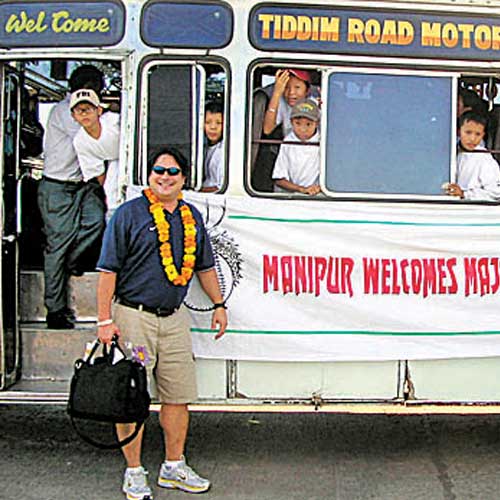The front consists of 10 regional parties, who have put aside differences and have come together
Guwahati, Oct 24 : Hardly anyone has noticed that ten regional political parties in the north-east have formed a new political front — the North-East Regional Political Front (NERPF) — to work together for safeguarding “territorial, cultural, social, political and economic rights of the people of the region and to continuously strive to protect the distinctive identities of the ethnic tribes and of all the people of the region.”
The initiaitve was taken by the Asom Gana Parishad (AGP) and the Front elected Nagaland Chief Minister Neiphiu Rio as the convener and former Assam Chief Minister and AGP president Prafulla Kumar Mahanta the front’s chief adviser. The constituent parties have four representatives each in the NERPF. The permanent office would be in Guwahati. The first meeting of the NERPF will be held in Kohima while the front plans to hold a rally in Guwahati in January.
The meeting adopted 17 resolutions, including a resolution seeking a fresh look into the issue of Centre-State relations in true spirit of federalism. It demanded a comprehensive amendment of the Seventh Schedule of the Constitution with devolution of powers to States in every matter, except those pertaining to defence, external relations, currency and external trade. The NERPF also demanded the scrapping of the concurrent list and transfer of all the subjects in it to the State list.
Expressing concern over “continued incursion by China into Arunachal Pradesh,” the NERPF called upon the Centre to take up the matter immediately with China and prevent “any future incursion.”
“The regional parties express serious concern at the actions of the Government of China to build massive dams in the upper reaches of the Brahmaputra and attempts to divert the river. The Brahmaputra is the lifeline of the NE region and any attempt to interfere with the natural flow of the river should be considered as an act of aggression. The regional parties condemn the lack of seriousness on the part of Government of India and asks the Government to take the strongest possible steps to stop the designs of the Chinese government against the NE region,” stated another resolution adopted at the meeting.
The Armed Forces (Special Powers) Act also featured among the resolutions adopted. The front called for a halt to its use in all forms in the north-east, and, among other things, urged the Centre to immediately enter into a treaty with Bangladesh “to deport all the infiltrators from the NE region” and cancel the land swap deal with it.
80% reservation for “sons of the soil” in all Central, semi-central, public sector and private sector jobs in the region, implementation of the Look East Policy in letter and spirit, rebuilding of the portion of the historic Stilwell Road in India were the other resolutions adopted by the NERPF.
To the crucial question of the relationship of the Front with the Congress and the Bharatiya Janata Party, Rio said: “It can be equidistance or equi-closeness.”
The 10 parties, which took part in the meeting, were the Asom Gana Parishad, the Naga People’s Front — the ruling party in Nagaland — the United Democratic Party and the Hill State People’s Democratic Party of Meghalaya, the Manipur People’s Party, the Manipur State Congress Party, the Manipur Democratic People’s Front, the Mizo National Front, the People’s Party of Arunachal and the Indigenous People’s Front of Tripura (IPFT). Interestingly, all of these parties are regional parties.
The Nationalist Congress Party led by P Sangma was not invited.
The North East has more than 25 seats in the Lok Sabha. The Front is disparate and has elements that have cross state tribal differences. But they're put those aside and have come together. Going forward, this could have a significant impact on government formation especially if the election results in a hung Parliament.
















